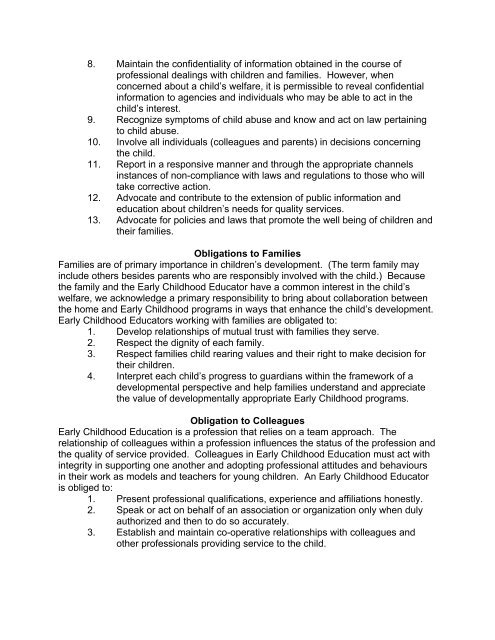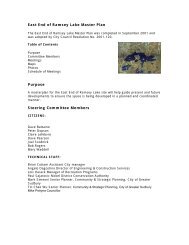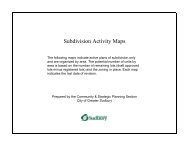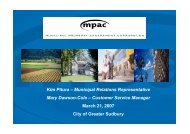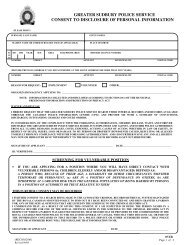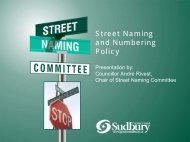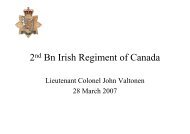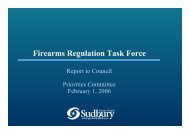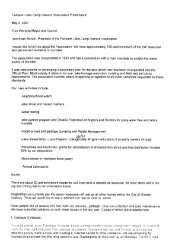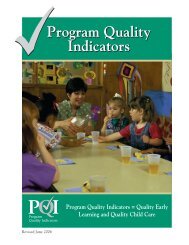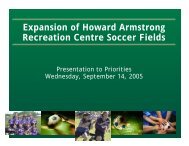Indicateurs de la qualité des programmes ... - Grand Sudbury
Indicateurs de la qualité des programmes ... - Grand Sudbury
Indicateurs de la qualité des programmes ... - Grand Sudbury
You also want an ePaper? Increase the reach of your titles
YUMPU automatically turns print PDFs into web optimized ePapers that Google loves.
8. Maintain the confi<strong>de</strong>ntiality of information obtained in the course of<br />
professional <strong>de</strong>alings with children and families. However, when<br />
concerned about a child’s welfare, it is permissible to reveal confi<strong>de</strong>ntial<br />
information to agencies and individuals who may be able to act in the<br />
child’s interest.<br />
9. Recognize symptoms of child abuse and know and act on <strong>la</strong>w pertaining<br />
to child abuse.<br />
10. Involve all individuals (colleagues and parents) in <strong>de</strong>cisions concerning<br />
the child.<br />
11. Report in a responsive manner and through the appropriate channels<br />
instances of non-compliance with <strong>la</strong>ws and regu<strong>la</strong>tions to those who will<br />
take corrective action.<br />
12. Advocate and contribute to the extension of public information and<br />
education about children’s needs for quality services.<br />
13. Advocate for policies and <strong>la</strong>ws that promote the well being of children and<br />
their families.<br />
Obligations to Families<br />
Families are of primary importance in children’s <strong>de</strong>velopment. (The term family may<br />
inclu<strong>de</strong> others besi<strong>de</strong>s parents who are responsibly involved with the child.) Because<br />
the family and the Early Childhood Educator have a common interest in the child’s<br />
welfare, we acknowledge a primary responsibility to bring about col<strong>la</strong>boration between<br />
the home and Early Childhood programs in ways that enhance the child’s <strong>de</strong>velopment.<br />
Early Childhood Educators working with families are obligated to:<br />
1. Develop re<strong>la</strong>tionships of mutual trust with families they serve.<br />
2. Respect the dignity of each family.<br />
3. Respect families child rearing values and their right to make <strong>de</strong>cision for<br />
their children.<br />
4. Interpret each child’s progress to guardians within the framework of a<br />
<strong>de</strong>velopmental perspective and help families un<strong>de</strong>rstand and appreciate<br />
the value of <strong>de</strong>velopmentally appropriate Early Childhood programs.<br />
Obligation to Colleagues<br />
Early Childhood Education is a profession that relies on a team approach. The<br />
re<strong>la</strong>tionship of colleagues within a profession influences the status of the profession and<br />
the quality of service provi<strong>de</strong>d. Colleagues in Early Childhood Education must act with<br />
integrity in supporting one another and adopting professional attitu<strong>de</strong>s and behaviours<br />
in their work as mo<strong>de</strong>ls and teachers for young children. An Early Childhood Educator<br />
is obliged to:<br />
1. Present professional qualifications, experience and affiliations honestly.<br />
2. Speak or act on behalf of an association or organization only when duly<br />
authorized and then to do so accurately.<br />
3. Establish and maintain co-operative re<strong>la</strong>tionships with colleagues and<br />
other professionals providing service to the child.


